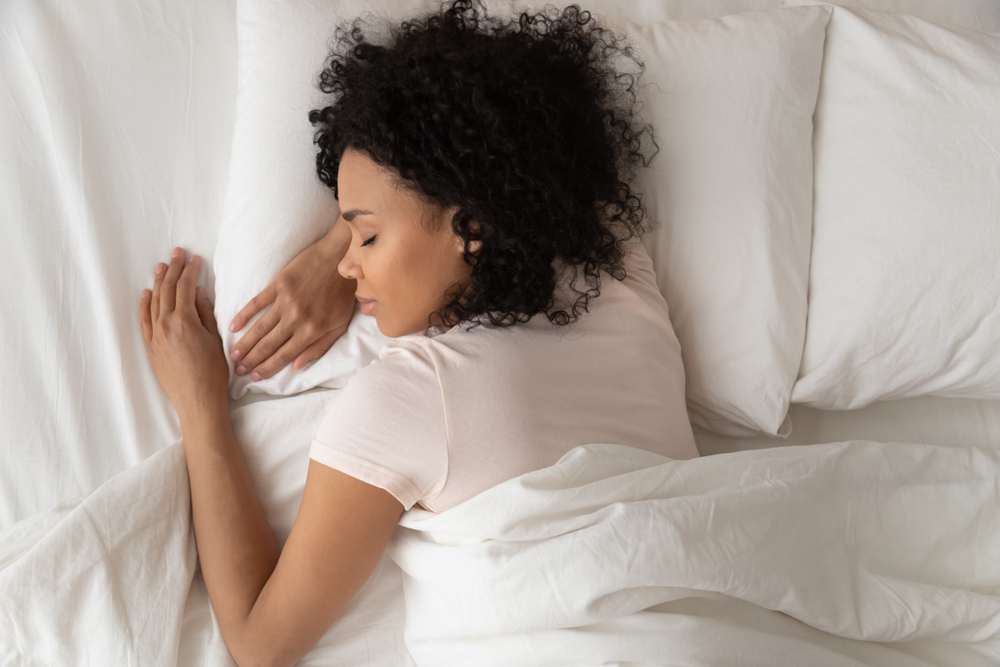
Articles
SleepScore at the ATN Innovation Summit 2025: Why Sleep Drives Everything
Reimagining The World of Sleep SleepScore Labs was proud to take part in the ATN Innovation Summit 2025, an elite gathering…
We deliver accurate data, actionable insights, personalized coaching and proven outcomes your customers need.
Last Published on 1st July 2017 by SleepScore Labs

Even though sleep seems like a passive process, it’s not. Sleep is an active state that is, in some ways, as complex as wakefulness. Your brain doesn’t shut down during sleep; rather, your brain is involved in a wide variety of vital processes geared toward its own repair and rejuvenation, restoring stamina, strength, and function to prepare for the day ahead. It’s also important for memory consolidation, processing what you learned the day before, and other important cognitive functions.
The sleep stages consist of transitional light, light, deep, and REM sleep. All are important to your overall sleep health, but the two main types of sleep that we’ll focus on in this article are Non-REM and REM. Non-REM sleep (sometimes called NREM), which includes light and deep sleep, accounts for about the majority of your sleeping time. REM (Rapid Eye Movement) sleep is where you may spend some of your time dreaming. This typically takes place during the last half of your night’s sleep.

While you’re snoozing, you usually go through 4-5 sleep cycles that begin in light NREM sleep and end in REM sleep with each cycle taking between 70 and 120 minutes to complete. Let’s dive into our guide to what your body is doing during these stages of sleep and why they are so important.
This is the transitional stage between wakefulness and light sleep. Sleep onset, the process of falling asleep, is apparent at the start of every sleep cycle. You begin to feel your muscles relax, and drowsiness may overcome you as you sink into your pillow.
The brainwaves that are associated with a relaxed wakeful state—called alpha waves begin to subside during this stage, giving way to brainwave frequencies called Theta. This is generally a relatively short stage, lasting between 1 and 7 minutes. After this stage, you can still be easily awakened.
Light sleep is the next stage of sleep. Light sleep generally covers 50-60% of the night. During this phase you might still be awakened by a sound in the next room, or the cat jumping up on the bed.
As you transition from light sleep to deep sleep, your brainwaves slow further, as you drift into a deeper slumber.
Deep sleep is also also known as slow-wave sleep. During this stage, brain waves slow considerably. Heart rate and breathing slow (this also occurs in light sleep too), blood pressure lowers, muscles relax, and it becomes difficult to wake up.
Deep sleep is a critical time for physical restoration. Repair occurs at the cellular level, restoring strength and function to tissue, muscle, and organs throughout the body. During these sleep stages, the body also restores function to the immune system.
In healthy sleepers who get adequate rest each night, you reach REM (Rapid Eye Movement) sleep for the first time approximately 90 minutes into the night. Periods of REM sleep start as shorter amounts initially, but REM sleep grows progressively longer throughout the night. During REM sleep, the brain increases its activity levels compared to the other sleep stages . While in REM, your eyes move rapidly in different directions (hence the name), heart rate and blood pressure increases, your breathing becomes fast, irregular, and shallow, and your brain begins producing REM sleep waves. REM sleep brain waves actually look quite similar to those seen when we’re awake. The main difference, however, is that in REM sleep, you don’t act out your dream content.
Most dreaming occurs during this phase. If you wake with an awareness of having been dreaming, you likely awoke from REM sleep.
REM sleep is a critical phase of sleep for learning and memory, a time when the brain consolidates, processes, and stores information. In fact, scientists say that dreams themselves actually help process information and encode short-term memory into long-term memory.

All stages of sleep are important, and transitioning between each is a vital part of achieving ample time in each stage. It’s the balance of time spent in each sleep stage that is critical to feeling fully rested and refreshed, and to having the mental and physical energy to meet the requirements of the waking day. By creating habits and routines that promote healthy sleep, you help your body maintain the integrity of your own individual sleep schedule, which in turn benefits your long-term health.
If you’re having trouble sleeping, you’re waking up often during sleep, or you feel that you simply never enter deep sleep during the night, it’s critical not to ignore it. It’s easy to feel helpless when you spend hour after hour, for many nights in a row, hopelessly chasing sleep with no success. Don’t give up. Taking steps to stay asleep with fewer interruptions, like using a white noise machine and proper temperature control, can ensure you pass through your sleep cycles smoothly and wake up feeling rested and refreshed.

It’s often difficult to fall asleep and stay asleep if your daily routine varies. Think about it this way: your body is naturally tuned to pass through its four sleep stages during a night of rest. So, it needs to “know” when to start with the first stage and progress through each of the following stages.
By going to bed at 9pm one night, then 2am the next, then passing out after dinner at 7pm the day after that, you give your body mixed signals. Deciding on a firm bedtime (try to keep it within about a half-hour period) can help your body get used to a consistent sleep schedule. Once your body enters the first stage at a given time, the other stages can fall in line more easily. If you need a reminder to get to bed by a certain time, the SleepScore app can help.
Sure, you may already own a bed and a blanket, but there’s more that you can invest in to help you ensure a full night of sleep. For example, did you know that weighted blankets can help soothe your body and reduce stress? That’s because they activate a similar response to getting a warm, comforting hug—perfect if you just need the extra nudge to fall asleep at night.
SleepScore offers a wide range of validated products, including:
The importance of sleep is hard to overstate. Investing in sleep aids, from blankets and PJs to air purifiers and light therapy glasses, is often well worth it in the long run.
One reason why many people struggle to sleep is that they are constantly stressed out during the day. Once you turn off the light and get under the covers, it’s not as though your student loans, work assignments, and upcoming bills suddenly vanish. That can mean that, even if you’re trying not to think about these things as you fall asleep, they’re likely still weighing on your mind subconsciously.
Feeling stressed can harm every stage of your sleep cycle: it makes it harder to fall asleep, it can disrupt non-REM sleep by keeping your muscles from fully relaxing, and during REM sleep it can cause you to experience exhausting nightmares. What’s worse is that this can lead to a deadly feedback loop— sleep deprivation can make it easier to fall prey to stress during your waking hours.
Finding ways to reduce your daily sources of stress can be key to having a good night’s sleep. Whether that’s by finding a resolution to the conflicts stressing you out, or adopting a mindfulness practice like yoga or the use of essential oils for relaxation and sleep, taking steps to reduce your daily stress can have positive effects on your sleep.
If conventional home remedies and sleep aids don’t seem to be mitigating the problem, it may be worth seeking help from a medical professional. Sleep disorders like insomnia, sleep paralysis, and narcolepsy are serious conditions and should not be ignored. Sleep is vital to your health, and successfully sleeping through the night and completing your sleep cycles is necessary for any healthy lifestyle.
The four stages of sleep, brain waves, REM sleep—it can sound pretty complicated. Luckily, your body is able to naturally handle these processes every day. If it needs a little guidance getting on the right rhythm, SleepScore can help.